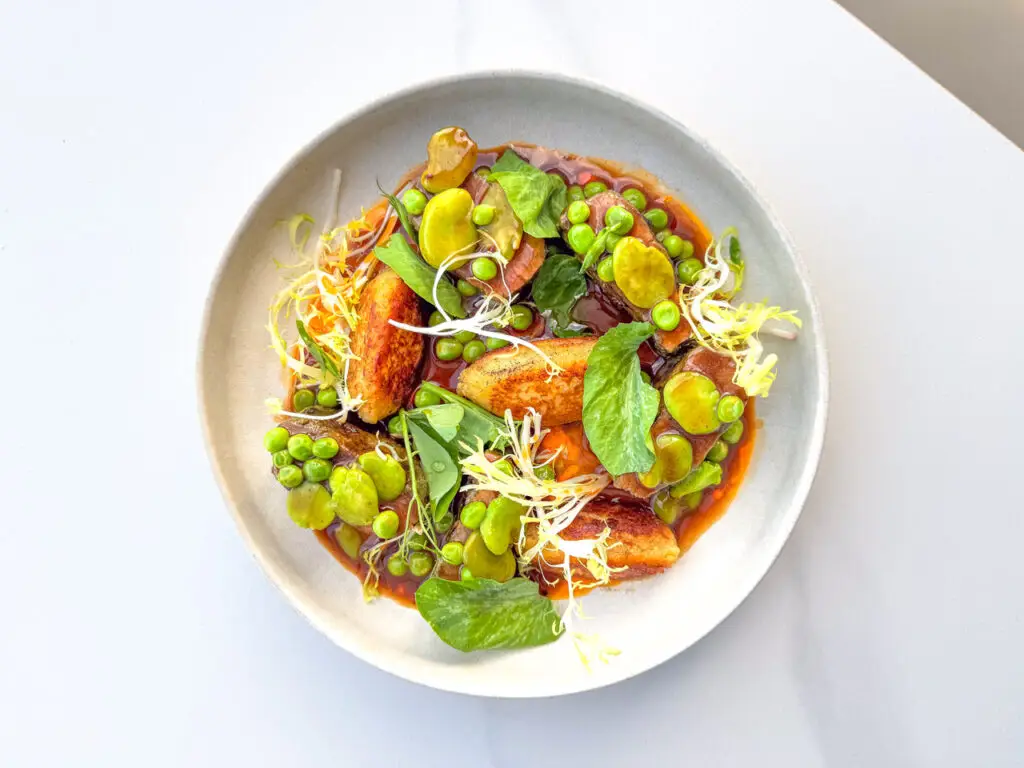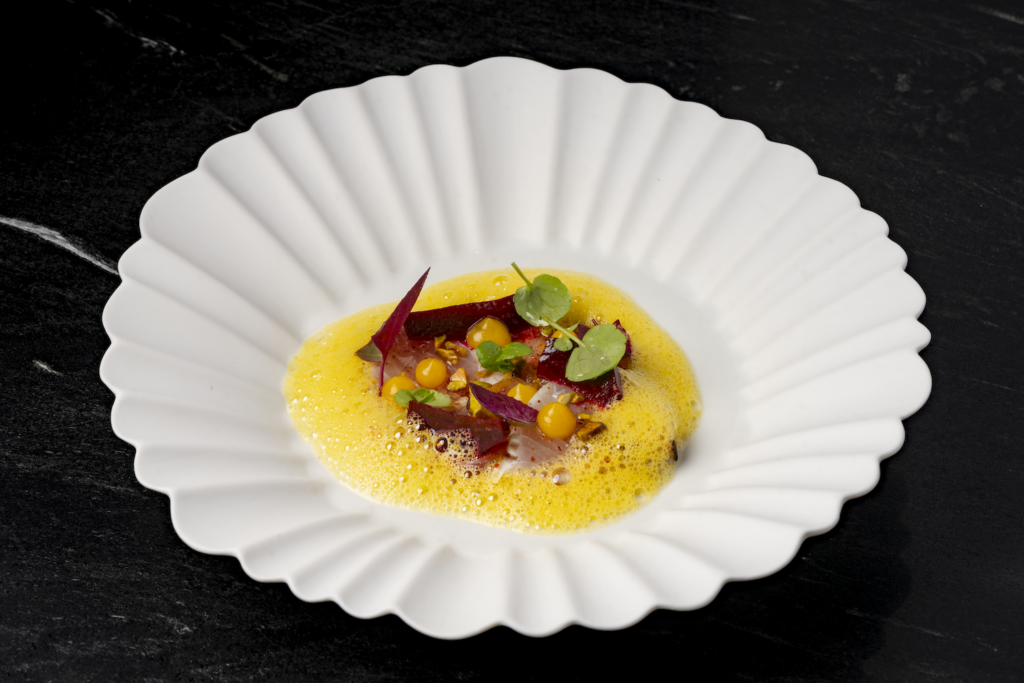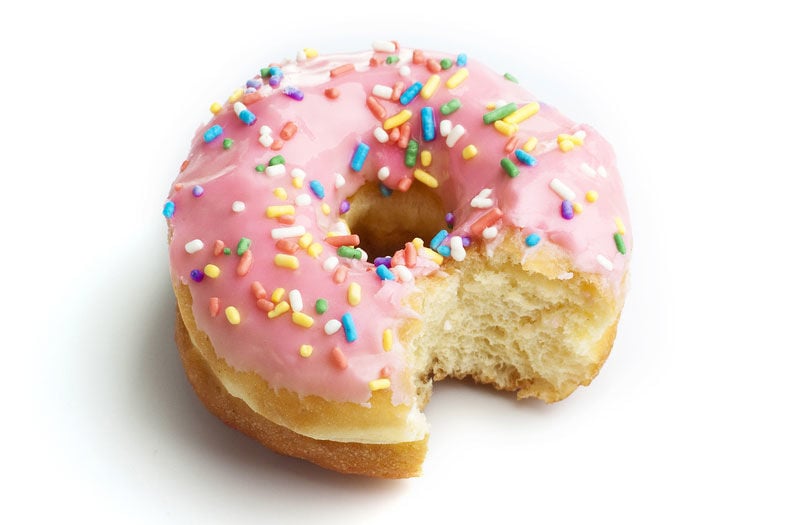“How are you not morbidly obese?”
For the past 11 years, it’s been my job to write about food. Longer than I expected, especially since my first reaction when told I’d have to edit the dining section of a magazine was, “**** food.” I’d spent the first 20 years of my career writing about music—punk and jazz and experimental bands I often wonder if I championed as a challenge rather than pleasure. I wrote about art, man. I didn’t think of food as art. The food writing I’d read up until that point was flowery, indulgent, comically aristocratic. Microgreens sounded like something people named Perry and Genevieve would discuss around a fire feature in their Aspen timeshare, wearing soft sweaters.
But it was 2007, the American economy was muttering to itself in an alley that smelled like broken homes and Enron’s deplorable musk. I’d lost two-thirds of my freelance income in the span of a week. I needed a job. So I lied and told my prospective editor that I would love to write about what people eat. Having gotten myself in far, far over my head, I studied like mad. I read food dictionaries and cookbooks and Gael Greene and Anthony Bourdain and Calvin Trillin. In my Golden Hill apartment, I huddled every night in a tornado of flashcards and cigarette smoke, and gave myself an ad hoc culinary degree. I ate at restaurants and learned from chefs. I ate at more restaurants. And more. When I wasn’t eating out, I was cooking to learn.
After 4,000-plus days in this profession, I’ve stared down more warm calories than many humans will in an entire lifetime. I eat at anywhere between three and 25 restaurants a week (during special issues, I taste five dishes at five restaurants every day). I’ve shot over 100 episodes of Guy’s Grocery Games on Food Network, and each episode we taste nine dishes. And these dishes are usually not dainty affairs. Though restaurant culture is starting to cook lighter, a great portion of menus are still a tantalizing alchemy of butter, meat, salt, fat, and sugar. Yesterday in Ann Arbor, Michigan, filming Campus Eats for the Big Ten Network, I sampled a chorizo sandwich (pork sausage, coleslaw, guacamole, spicy aioli, shoestring fries, a sunnyside egg, on a brioche bun), four shakes (coconut, passion fruit, espresso, and chocolate), and churros with chocolate sauce.
My Instagram, which is where I document my favorite foods I find in San Diego and across the country, looks like a delicious way to demise. When dining at restaurants, my table looks like a cry for help, as I often sit alone in front of six or seven plates of food. Other diners point and whisper and wonder what terrible life event has crash-landed me at this point. And why I’ve chosen to try and spackle the dent in my soul with pork bellies and sabayons.
Other diners point and whisper and wonder what terrible life event has crash-landed me at this point.
Being a food writer is a very lucky, inspiring profession. I’ve been honored to taste food made by some of the most talented, creative chefs and cooks in the country. But it’s also a dangerous job. When former New York Times food critic Frank Bruni retired, he went on a small crusade to warn people that the food writing career is unhealthy, if not deadly. We inhabit bodies, not compost machines.
There is a very real potential for a food writer to become unhealthily obese. Yet, somehow, I’ve so far managed to contain the caloric assault without requiring medical intervention. How? The two-bite rule. Sure, I do the normal things like exercise (I surf, and replaced my dining room table in my tiny Ocean Beach cottage with a treadmill). Every breakfast is an insanely healthy smoothie. Though I’m no gym rat, my position is occasionally plank.
None of my close friends would ever accuse me of excessive restraint. I’ve smoked cigarettes. I’m a friend of the wine and the whiskey. But somehow, I’ve managed to restrain myself from crushing every donut I’ve encountered over the past 11 years because of the two-bite rule. The first is just for sheer pleasure. I don’t overthink it. The second bite is a math problem. I look at the elements on the plate and try to imagine what the chef intended as the perfect bite, and construct it onto a utensil. I close my eyes. I let the bite sit in my mouth for extra seconds, and I start forming opinions and writing its story, good or bad. And then I’m done.
I do everything I possibly can to make sure the food I leave on the plate doesn’t go to waste. Sometimes I’ll take it home and cook with the ingredients. I’ll ask if the kitchen staff will eat the leftovers, and try not to get my dirty fork all over the uneaten portions. If the staff declines, I’ll take it to go and try to find someone on the streets who looks hungry.
I’m not a professional eater. I’m a professional taster, much like wine critics who spit $50 sips of Bordeaux into a bucket. By no means am I thin. My abs took refuge years ago and haven’t been seen since. My underwear modeling prospects were never very bright, but they were doomed the day I took this job.
The two-bite rule has has taught me how to truly appreciate my food.
The two-bite rule has not only extended my lifespan and saved money I’d have to spend on pants, but it’s also taught me a whole new way of eating that I will carry on long after this job is done. It’s taught me how to truly appreciate my food. Buddhists and health professionals talk about mindful eating, and that’s essentially what the two-bite rule is.
When you only have two bites to make an informed impression of a meal, you get off your phone, you stop talking, you eat slow, you tune out as much noise as possible. You focus on that ancient pleasure of tasting food. The temporary tattoo in your memory lasts longer. The pleasure meter goes higher. Raised in a household that admonished “finish what’s on your plate,” I realized that no, thank you, I don’t have to. I can eat until a comfortable satiation, and then take the rest for a later snack.
For much of my life I ate mechanically. The fork was a shovel and my mouth was an efficient, fast machine to break it down. I notice many of my friends still eat this way, and I wish they could experience what I have—the slow, thoughtful, focused enjoyment of tasting food. The two-bite rule has not only saved my mortal coil, but it’s intrinsically altered the way I eat. It’s made it better, and deepened my love affair with what America is cooking.

PARTNER CONTENT
The Two-Bite Rule





















